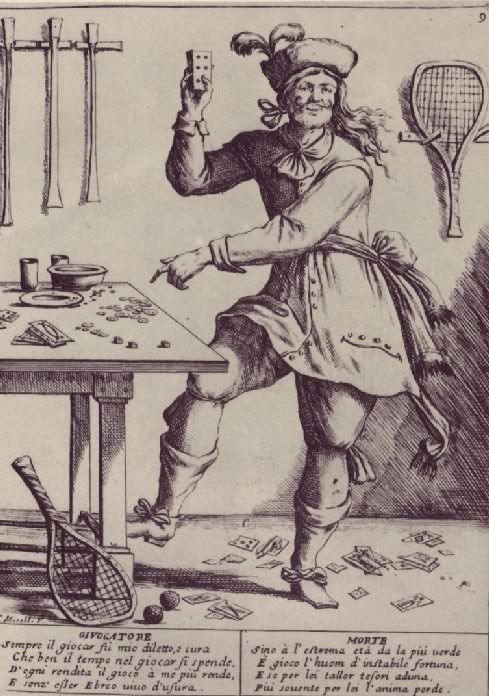kwaw
kwaw said:Barattino (deceiver, trickster, false/cheating gamester, keeper of a barrattiere ~ a gaming house)...
... by Andrea Vitali for Barattino, from a tarocchi apropriati sonnet in Italian, in translated text however he gives Bagattino that he describes in note as meaning a stupid man of no value,– so I am not sure that Barattino he gives in Italian text is not a typo for bagattino:
http://groups.yahoo.com/group/LTarot/message/2155
Kwaw
"Par che l'angel, la stella, il sol, la luna
Col mondo, et chi con lui di viver brama,
Odiano la beltà, che il cielo aduna
Nel viso altier de la signora Mama.
Forsi per esser tra le Dee queste una
Che lor spogli del ben, che 'l valor ama,
O pur, per che ne morte, o ria fortuna
Dal fermo suo voler maj la richiama:
però dee creder fermamente ognuno
Ch'un spirtito malvagio habbia costej
Supposta solamente al Barattino
Per poter dire i buoni tarocchi mej
Saran, s'avien ch'io giuochi, et questi uno
Vo trare il Matto ch'è cervel divino.
It seems that the angel, the star, the sun, the moon
With the world, and who covet to live with it,
Hate the beauty, that the heaven united
In the proud face of Mrs. Mother.
Maybe amongst these Goddesses she is stripped of the good,
whom the worthy love, for being one between them.
Or perhaps because neither death nor perditious fortune
From her own firm will can recall her:
But surely everyone firmly believes
This woman, who is above only the Baratinno,
Must possess a spirit of wickedness;
One able to say "the best tarot for myself
Shall be, to play as I please, and I draw
this one, the Matto or divine brain."
(NB: My translation probably has errors. Corrections to translation welcomed. Vitali's translation and notes are at link above.)
Kwaw
*or, a jot of heavenly conceit? or, a nothing of God’s brain?
(I am reading ch'è as nothing, jot, whit; cervel as conceit, wit or brain).


